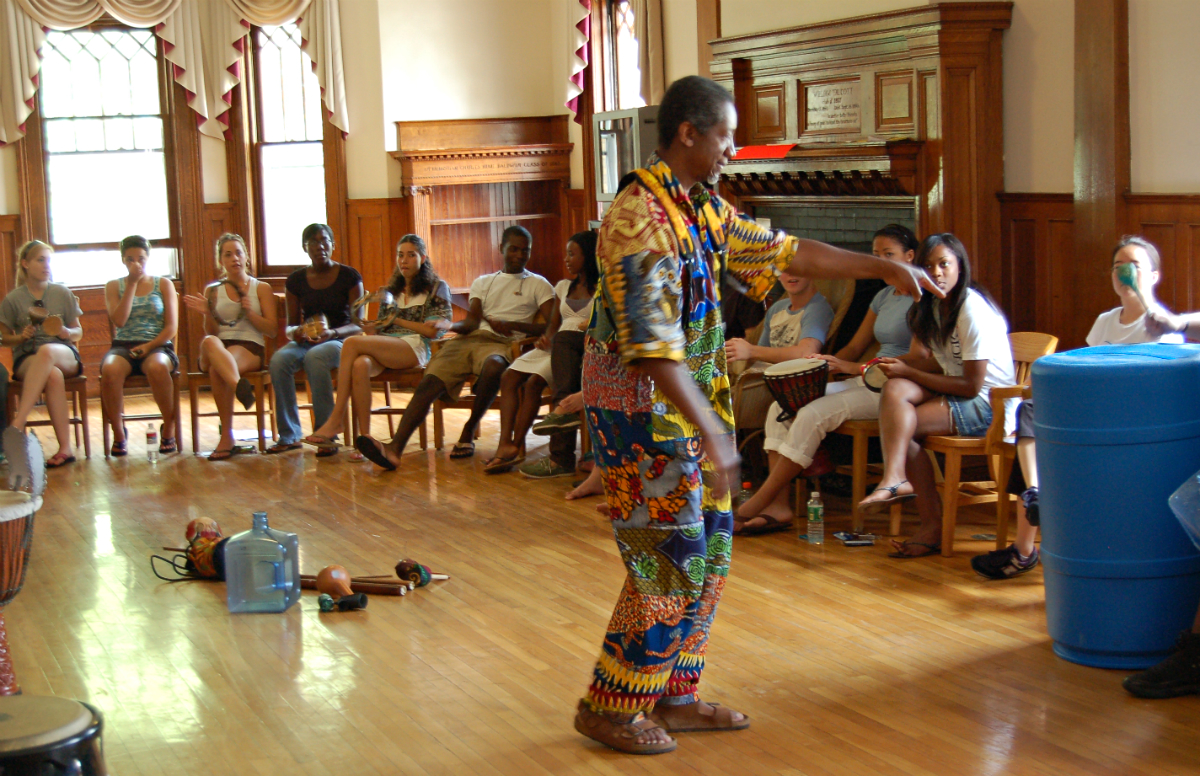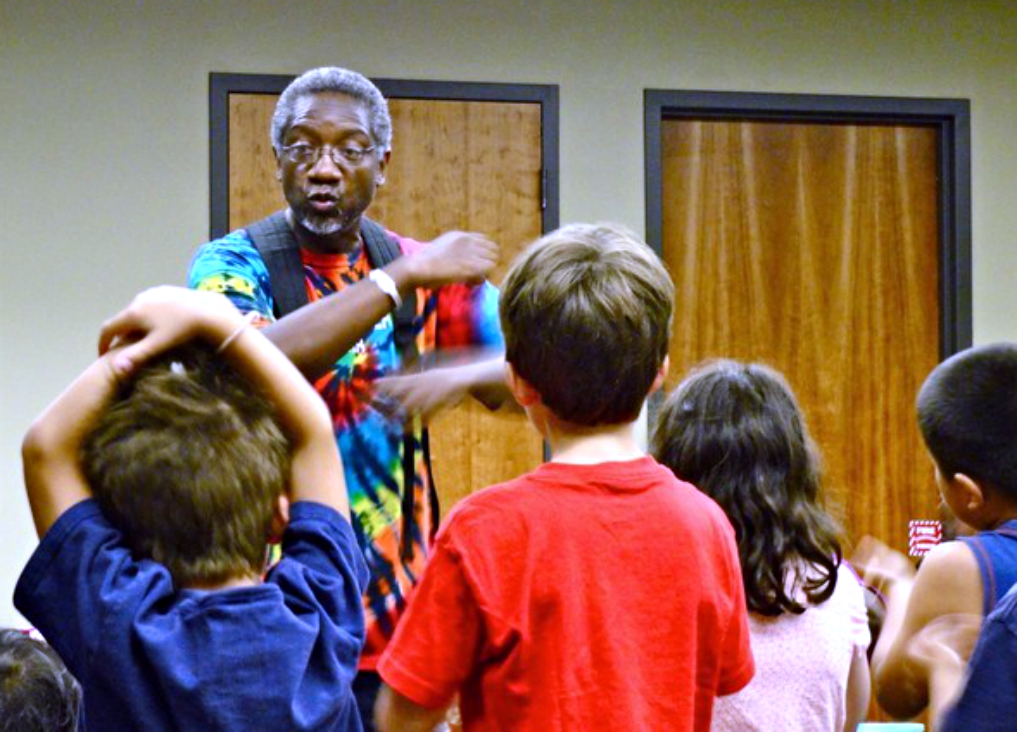The Rural We: Otha Day
The classically trained musician has turned from piano to drums in a quest to help unite people.

The classically trained musician has turned from piano to drums in a quest to help unite people.

Based in the northern Berkshires, the classically trained pianist has taught on the faculties of several schools in Massachusetts and Southern Vermont on the topics of “Rhythm-based Communication and Creativity,” “Music of the Harlem Renaissance,” music theory and jazz history. Day’s focus these days is leading drum/rhythm circles around the world in order to help build community, promote well-being and create joy for the participants. He's facilitated groups of all ages, from high school and college students to the elderly, from corporate retreats to the military at the Pentagon and everything in between. You, too, can join him in a drum circle at The Clark Art on Sunday, Aug. 4 at 12:30 p.m. as part of the Museum’s Hyperlocal Community Concert Series.
I moved to Williamstown roughly 30 years ago and raised a family here. I was a classical pianist; I taught and performed and toured a small amount. I transitioned to being a drum circle facilitator when I had the first of my two strokes, about 15 years ago. I took up drums after the first and then more seriously after the second. I had surgery after my second stroke and my kids had to be very quiet in the house because of it, and everyone was sad. My son is a cellist, and on a trip to Wood Bros. for him, I noticed they had two conga drums for sale; I bought them as a gift for me and my family. The change through physical therapy was quite dramatic because of the drumming — having to do 2 or 3 things at one time helped with recovery.
I became a drummer, but with the election of Donald Trump, I realized that I had to do more to heal the world, so I also do workshops around race and racism. I’m from Mississippi, and I grew up in Chicago, so as a black man growing up in the Midwest I’ve experienced different forms of racism. Emmett Till was murdered two years after I was born and about an hour away from me. People find it hard to talk about race. In my drum-to-talk program we use drums and drum circles to get to conversations about it. Next year, I want to use drum circles to talk about sexual violence and sexual violence prevention.
I bring about 60-80 hand drums to my events, mostly congas and djembes (I have enough instruments for 2,000 people). I set folks up in a circle and teach them some songs. I almost always use the song “Fanga Alafia,” the single best-known rhythm song in the world. I bring shakers and tambourines and we dance and then drum. They can make up their own rhythms and everyone has a good time, always. It’s a good way to relieve stress; it’s therapeutic.
I’m all about helping people realize how connected we all are. We play the heartbeat rhythm and my intention is to get them to realize we’re on one earth, we are all responsible for each other, and to give folks strength to share. If we don’t talk, then nothing happens. It’s a way to help people find a forum to talk and to listen, be aware of what other people are doing and experiencing, and how we’re influenced by the community around us. When I see people smiling and laughing and connecting, it means hearts are opening.
I find that when we get into our emotions and the anger of race, people become blocked. Listening is one thing, but when participating you become aware in a way that you weren’t before. You can connect in a way that you can’t otherwise, it allows you to have deep conversations quickly. It’s a wonderful way to live life — connecting their joy to the joy of other folks, helping them to see we can all be lights.



